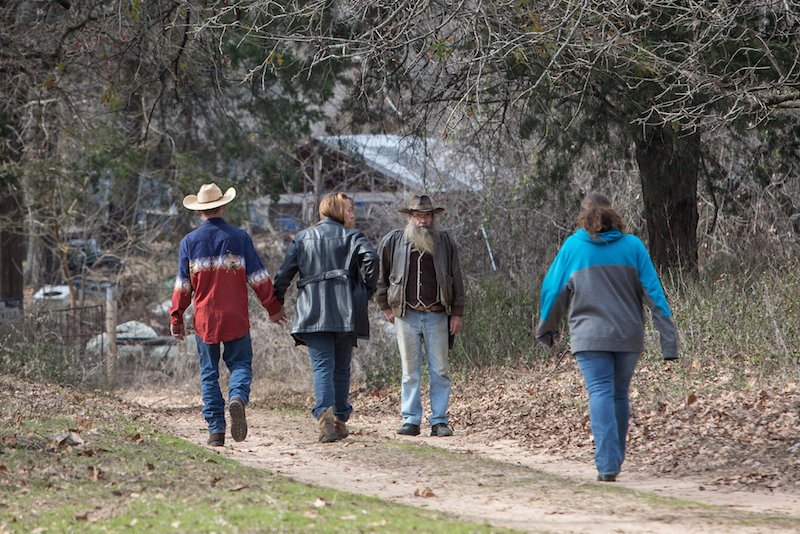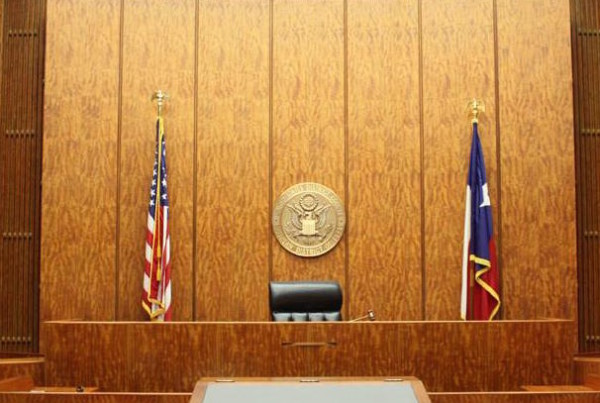Texas and standoffs: the two have a complicated past from the historic siege on the Alamo to the tragic events in Waco. What about the decade-long standoff on the banks of the Trinity River? Recall the case of John Joe Gray.
Gray, a self-proclaimed “freedom fighter,” has been holed up on his 47-acre property since January 2000. In an excerpt from an interview with ABC News’s John Quinones, he says the felony charge against him of assaulting two state troopers are trumped up. If feds try to raid the place, Gray says his response will be simple.
“We’ll defend it, that’s all there is to it,” Gray said in the interview, which took place just after the standoff began. “Come out after us, bring extra body bags. Those who live by the sword will die by the sword.”
It’s been called America’s longest-running law-enforcement standoff, just shy of 15 years. The catch? It’s been mostly one-sided.
Manny Fernandez, Houston bureau chief for The New York Times, says the compound is in the middle of a rural East Texas town with a river snaking through it. At a cattle guard gate, signs with “anti-government, anti-tyranny” messages indicate where the Gray’s property begins. Fernandez wasn’t successful in reaching Gray for comment.
“One time Mr. Gray got close to the gate but still kept sort of far away – he didn’t want to talk to me,” he says. “He sent some of his relative and his supporters to the gate, who were armed, to try to see who we were and what we wanted.”
The standoff began when Gray didn’t want to answer an aggravated assault charge filed against him in nearby Anderson County, Fernandez says. Gray was charged with biting a state trooper during a routine traffic stop, which is a felony. But local law enforcement never attempted to bring him in for the charges.
“[Authorities] essentially left him alone,” Fernandez says. “They did surveillance on the property but they never actually pulled up and tried to confront them at all. I think that the authorities, for a long time, thought that by doing that, that would escalate the situation and it would turn violent quickly, as Gray had vowed.”
Though the charges were dropped in 2014, Fernandez says Gray has stayed on his property. Fernandez even told those on the Gray property that the local sheriff told Fernandez during an interview that Gray was “no longer a fugitive.” When Fernandez asked a woman at the fence whether this dropped charge changes anything, she “shook her head no.”
“It seems like they’ve been dug in for so long,” he says, “that the end doesn’t really seem real to them.”
Fernandez says though the standoff in Oregon is different, law enforcement could draw some similarities between the two.
“When law enforcement sort of backs away from people doing a standoff, there is a danger that it could sort of slowly drag on,” he says. “In some ways, the authorities [in Trinidad, Texas], taking that very cautious approach – they were sort of vindicated by this. There never was an incident. There never was shots fired against law enforcement and law enforcement firing shots against them.”
















